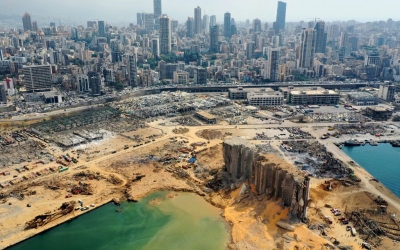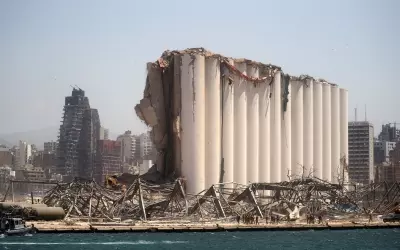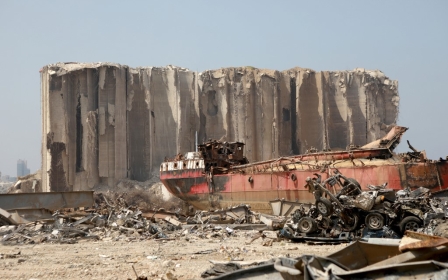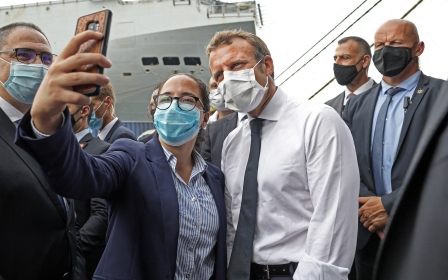Beirut explosion: Four tonnes of explosive material found near port
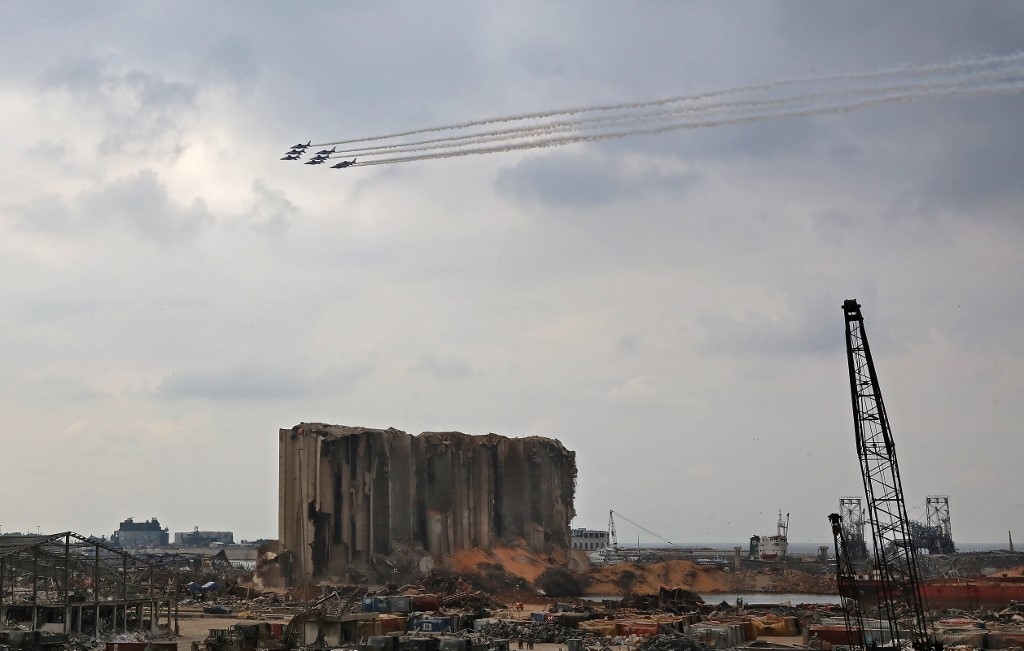
Lebanon's army said on Thursday it had found 4.35 tonnes of highly explosive ammonium nitrate near the entrance to Beirut port, the site of a huge explosion of the same chemical last month, the state news agency NNA reported.
Army engineers were "dealing with it", NNA reported, citing an army statement.
Lebanon's government has attributed the enormous blast that hit the capital Beirut on 4 August to the 2,700 tonnes of the chemical compound ammonium nitrate that had been left lying in a warehouse in Beirut port since 2013.
The blast has killed at least 190 people and injured 6,500, while the World Bank has estimated that it caused up to $8.1bn in damage and economic losses in the cash-strapped country.
The government quit amid public anger in a nation already brought to its knees by the economic crisis. The public remains anxious that more hazardous materials are being stored badly, putting them at risk.
Earlier on Thursday, President Michel Aoun ordered repairs to be made to old refuelling infrastructure at Beirut airport and called for an investigation into a report that thousands of litres of fuel had leaked from the system.
Beirut airport head Fadi el-Hassan told a news conference that a leak of 84,000 litres of fuel had occurred in March 2019 and repairs were completed in two months. He said international investigators had described the repairs as "satisfactory".
News of the leak added to concerns about public safety. "No explosion is awaiting us," Hassan told the news conference.
What is ammonium nitrate?
Ammonium nitrate is an industrial chemical commonly used for fertilisers, but also as an explosive, often used in mining.
The chemical, known by the formula NH4NO3, is a naturally white crystalline solid and is often known as saltpetre.
Under most conditions, ammonium nitrate is not necessarily dangerous and is relatively stable - it can even be used to smother a fire.
However, if contaminated it can become highly volatile.
How did the chemical end up in the port?
The chemicals originally arrived at Beirut's port on board a Russian-owned cargo vessel flying a Moldovan flag in September 2013.
The shipping monitoring organisation ShipArrested.com at the time reported that "upon inspection of the vessel by Port State Control, the vessel was forbidden from sailing. Most crew except the master and four crew members were repatriated and shortly afterwards the vessel was abandoned by her owners after charterers and cargo concern lost interest in the cargo".
According to documents posted online and seen by Al Jazeera, the ship's dangerous cargo was then offloaded and placed in hangar 12.
Numerous letters were reportedly sent by customs officials, including former director of Lebanese customs Shafik Merhi, to judges between 2014 and 2017 asking for guidance on what to do with the chemicals.
One letter sent in 2016 - which noted there had been "no reply" to previous requests - said the ammonium nitrate was being kept in "unsuitable" conditions.
"In view of the serious danger of keeping these goods in the hangar in unsuitable climatic conditions, we reaffirm our request to please request the marine agency to re-export these goods immediately to preserve the safety of the port and those working in it, or to look into agreeing to sell this amount," said the letter.
Another letter was sent by Lebanese customs administration director general Badri Daher on 27 October 2017 urging a resolution to the situation, in light of "the danger ... of leaving these goods in the place they are, and to those working there".
Middle East Eye delivers independent and unrivalled coverage and analysis of the Middle East, North Africa and beyond. To learn more about republishing this content and the associated fees, please fill out this form. More about MEE can be found here.


